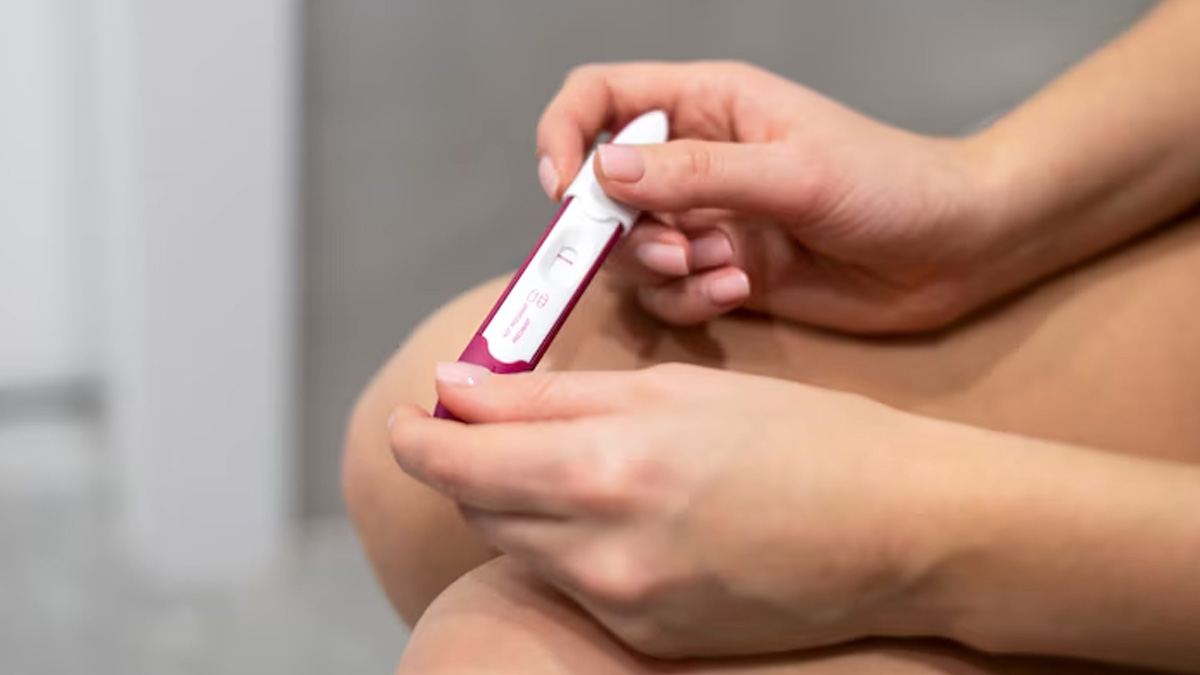
Breast cancer, one of the most prevalent cancers affecting women, often brings with it concerns beyond the disease itself—especially for younger women who are yet to start or complete their families. The impact of breast cancer treatment on fertility is a significant worry for many. While treatments like chemotherapy and hormone therapy can be highly effective in fighting cancer, they can also affect a woman’s ability to conceive. However, with advancements in fertility preservation, there is hope for women who wish to become mothers after beating cancer.
Table of Content:-
To understand if women can conceive after breast cancer treatment, OnlyMyHealth interacted with Dr Saphalta Baghmar, Senior Consultant, Medical Oncology, Amrita Hospital, Faridabad.
How Breast Cancer Treatment Affects Reproductive Health

Breast cancer treatments, especially chemotherapy, can sometimes interfere with a woman’s reproductive system. Certain chemotherapy drugs can damage the ovaries, leading to premature menopause or ovarian failure, which may make natural conception difficult or even impossible.
According to Dr Baghmar, "Yes, there are certainly chances for women to conceive after breast cancer treatment. However, some chemotherapy drugs can induce early menopause, which may prevent a woman from having children." She explains that while the risk of infertility depends on various factors, including the type of chemotherapy and the woman’s age, it is always important to have a discussion about future pregnancy plans before treatment begins.
Also read: How Likely Are You to Get Breast Cancer If Your Mother Had It?
Fertility Preservation

For women who want to keep their options open for motherhood, there are proactive steps that can be taken. Before starting chemotherapy, women have the option of preserving their eggs or embryos through cryopreservation. Dr Baghmar highlights the importance of this conversation with patients, "Before starting chemotherapy, we always ask our female patients about their future pregnancy plans. If a patient is not interested in having children, we proceed with treatment. But for those who wish to preserve their fertility, we offer egg preservation. This process involves freezing eggs or follicles before chemotherapy to safeguard them against potential menopause caused by the treatment."
Egg preservation, also known as cryopreservation, is a well-established method where eggs are harvested and frozen for future use. This offers women the opportunity to have biological children later, even if their ovaries are no longer functional after chemotherapy.
Shielding Ovaries During Treatment
In addition to egg preservation, hormonal protection is another approach used to minimise ovarian damage during chemotherapy. Dr Baghmar explains that certain hormonal therapies can be used during cancer treatment to shield the ovaries and maintain their functionality. "In addition to egg preservation, we also use hormonal therapies to protect the ovaries during chemotherapy, keeping them functional." This method involves temporarily suppressing ovarian function during chemotherapy, thereby reducing the risk of long-term damage.
Also read: Why Is There A Surge In Egg Freezing Among Career-driven Young Women?
Conception After Cancer Treatment

After a woman completes her cancer treatment, the journey toward motherhood is still very much a possibility. "Once the cancer treatment is completed, if the patient wants to try for pregnancy, they can attempt to conceive naturally," says Dr Baghmar. For some women, ovarian function resumes after treatment, and natural conception may occur without the need for medical intervention.
However, for those who face difficulty conceiving naturally, assisted reproductive technologies (ART) offer a viable path to parenthood. In such cases, in vitro fertilisation (IVF) using the eggs that were preserved before chemotherapy can be a successful option. "If natural conception doesn’t work, we proceed with IVF using the eggs preserved before the treatment," adds Dr Baghmar.
Conclusion
Breast cancer is no longer a barrier to motherhood for many women, thanks to advancements in fertility preservation and reproductive technologies. Dr Saphalta Baghmar’s insights provide a hopeful outlook for breast cancer survivors, as she says, "Yes, there are chances for women to conceive after treatment." By planning ahead and exploring fertility preservation options, women can look forward to a future where they can both conquer cancer and embrace motherhood.
Also watch this video
How we keep this article up to date:
We work with experts and keep a close eye on the latest in health and wellness. Whenever there is a new research or helpful information, we update our articles with accurate and useful advice.
Current Version
